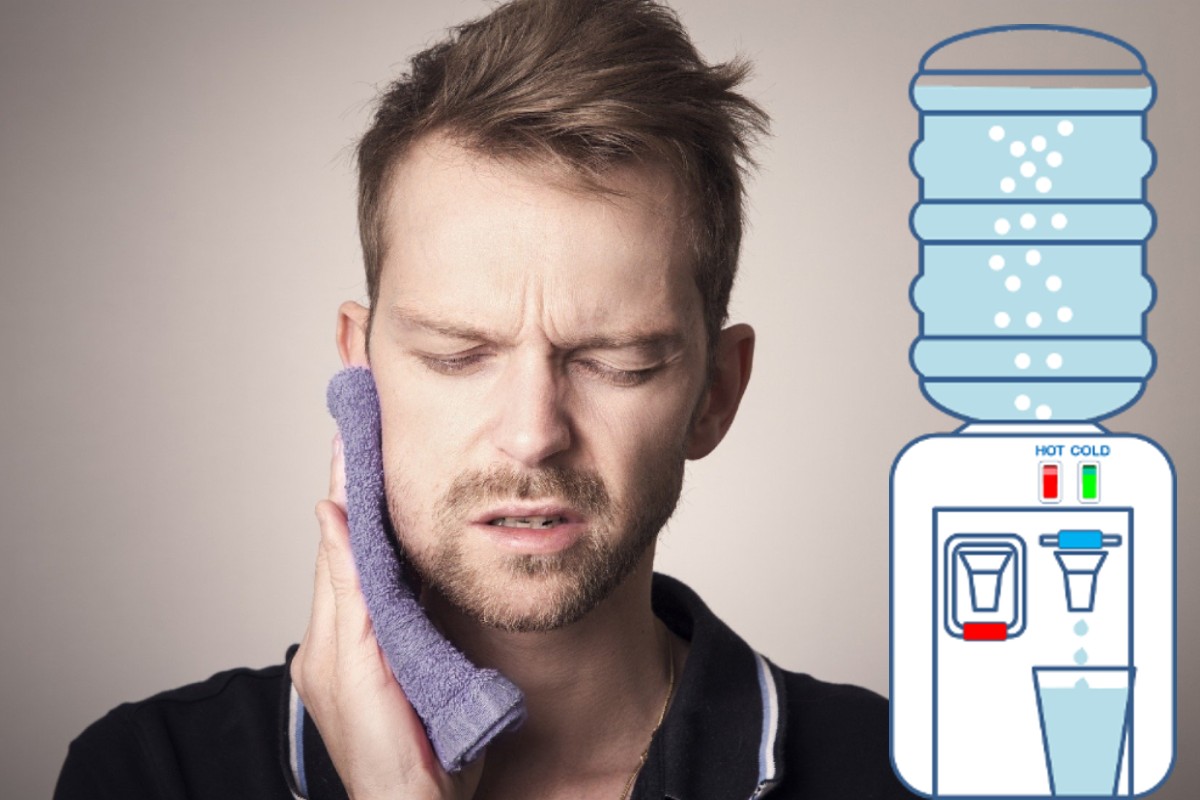If you’ve been experiencing tooth sensitivity, you’ve probably been asking people, “Why does my tooth hurt when I drink something cold?”
The symptoms of cold-sensitive teeth are fairly straightforward. When you eat or drink something cold, or even breathe in cold air, your teeth can experience a sharp jolting sensation. The following are some of the most common reasons why people experience cold sensitivity:
- Eating ice cream
- Drinking lots of ice water or other cold beverages
- Side-effects associated with teeth whitening products
- Brushing and rinsing teeth
Most cold sensitivity is transitory, depending on the cause. It seldom lingers for an extended period of time. In general, it wears off in a matter of seconds but reappears whenever your teeth are exposed to cold temperatures.
Don’t ignore your teeth sensitivity if the pain lingers. It’s your body’s way of telling you that something is wrong! The first step in treating any type of dental hypersensitivity is to recognize the warning signs. As a result, we’ve answered why your tooth or teeth may hurt when you drink something cold in this post.
Reasons Why Your Tooth Might Hurt When You Drink Something Cold
Cold sensitive teeth can be caused by a variety of internal and external factors. Disease or tooth decay, plaque build-up, and gum disease can all cause your tooth to become more sensitive and hurt when you drink something too cold. Brushing too hard, overusing whitening products, consuming acidic foods or drinks, and tooth grinding can all expose the nerves of the teeth and make them more sensitive to cold.
While you may not realize it, the main reason your teeth hurt when you drink something cold is due to the various causes of Cold Sensitivity. The following are some of the most common causes of cold sensitivity and why your tooth might hurt when you drink something cold.
Erosion of the Enamel
Acid erosion can cause tooth enamel to thin, making it more susceptible to temperature changes. If you have frequent reflux or eat a high-acid diet, try to rinse your mouth with water or fluoride mouthwash several times throughout the day.
Recession in the Gums
When your gums begin to pull away, your root surfaces will be exposed to the elements. Instead of enamel, this area of your tooth is made up of weaker dentin and cementum layers. Dentin is quite porous, so it can be extremely painful when exposed to cold or even toothbrushing.
Gum recession can be caused by brushing too hard, using a brush with stiff bristles, teeth grinding, or gum disease.

Orthodontic Appliances Made of Metal
Remember when you were in elementary school, and you learned about good heat and cold conductors? If you eat or drink something cold, having a “metal mouth” can cause cold temperatures to linger, making tooth sensitivity more uncomfortable than before as it may hurt for longer.
New Dental Crowns or Large Fillings
If you recently had a large cavity filled. This could mean the nerve inside your tooth may have been slightly traumatized by the procedures used to repair the decay. Cold sensitivity or tenderness can last several weeks. Inform your dentist if it does not improve.
Also Read: Can I Eat Ice Cream After Tooth Extraction?
Many people have multiple causes for their sensitive teeth, and one can sometimes lead to another. Take grinding your teeth, for example. It affects both the enamel and the nerve endings, which can lead to tooth decay or disease. Tooth sensitivity is caused by receding gum lines, which are caused by brushing too hard. Age is also a factor as Teeth sensitivity to cold drinks is prominent among people between the ages of 25 and 30.
Prevention of Tooth Sensitivity to Cold Drinks
While determining the source of your tooth sensitivity is beneficial, the most important step you must take is prevention. You can take the following steps to ensure your teeth don’t get sensitive to cold.
- To protect the gum line, brush more gently and with soft-bristled brushes.
- Make sure you go to the dentist regularly and keep up with your cleanings.
- Plaque buildup and tooth decay can be avoided by maintaining good oral health.
- Keep an eye on the acidity of the foods and beverages you consume, as high acidity foods and beverages can damage tooth enamel.
- Try switching to a toothpaste designed for sensitive teeth. Many toothpaste brands are specifically designed for sensitive teeth.
- Be aware of, and try to avoid, tooth grinding or clenching. Consider putting on a mouthguard before going to bed.
- Using fluoridated dental mouth rinse and other products can help reduce sensitivity.
However, if you normally don’t have cold sensitivity and have been wondering why your teeth hurt when you drink cold water for example, you mustn’t ignore this pain. Tooth sensitivity can indicate a more serious problem, such as cavities. Make an appointment with a dentist to rule out more serious causes and to discuss possible pain relief options.
Products That Can Aid in The Treatment of Cold Tooth Sensitivity
Next time your tooth does hurt when you drink something cold, think about some over the counter products that can help alleviate the pain going forward. Here are some products that may be of assistance to you:
- Colgate Sensitivity Relief Serum
- Listerine Sensitivity Mouthwash
- Crest Gum & Sensitive Toothpaste
- Colgate Sensitivity Toothpaste
- Sensodyne Toothpaste
Solutions And Treatments to Teeth Sensitivity to Cold Drinks and Food
If you want to stop searching for answers to sensitive teeth, make sure to do the following:
Scale back If you use any kind of whitening product. You may want to whiten your teeth every other day rather than daily. Or you may want to ask your dentist for a slightly different concentration of teeth bleaching gel.
If you prefer whitening toothpaste, you should consider switching to a sensitivity formula. It may take up to two weeks of daily use of sensitivity toothpaste to see full results. However, the difference is usually quite noticeable.
Just make sure you choose a sensitivity toothpaste that is ADA approved. This way you’ll know without a doubt that it’s proven and effective for treating sensitive teeth.
Including fluoride rinse or gel in your daily routine can also help to block off your tubules and reduce tooth sensitivity. Even better, your dentist can provide you with a fluoride varnish treatment for tooth hypersensitivity. Because of how well it works for their tooth sensitivity, some people say they can wait up to three months between treatments.
Wrapping It Up
Having a tooth that is sensitive to cold is a sign that you should stop, look, and figure out what’s wrong. Cold sensitivity is common in many people, especially those who whiten their teeth or brush their teeth too hard.
The treatment of sensitive teeth can be as simple as changing toothpaste or applying fluoride gel, or as complex as endodontic therapy. If your symptoms do not improve and you still have a tooth or two that hurt when you drink or eat something cold, consult your dentist!
You May Also Like to Read: Can You Wear Linen in Winter?

